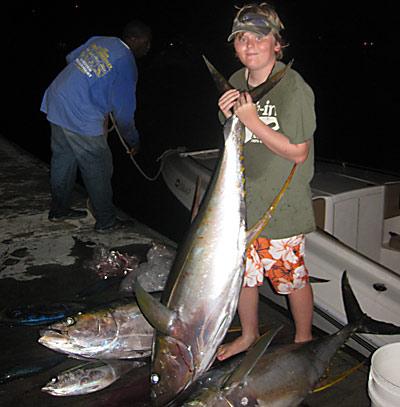Whither the Smoked Whiting?

Where has all the smoked whiting gone? There was a time when it seemed smoked whiting was everywhere. Bars in Montauk put it out for snacks. Not putting out a smoked whiting appetizer at Christmastime was considered a grave social faux pas. In barter transactions, smoked whiting was stable currency.
Michael Potts, captain of the Blue Fin IV charter boat, reported that during a productive day of fishing on Sunday — “no dogs, a beautiful day to start, then rough in the afternoon with a southwest wind” — 32 cod were caught along with two dozen sea bass. The sea bass were returned to the sea, as the season closed at the end of December. They shouldn’t even have been there if the winter had not been so mild.
Potts said his customers, from upstate, reeled up between 80 and 90 ling cod that they intended to put in their smokers. They cut them like you prepare whiting, an angled cut behind the head that leaves you with a gutless, headless body ready for the brine.
It was the eagerness with which his customers attacked the ling that caused the veteran charterman to wonder at how rare smoked whiting had become.
A call to the Seafood Shop in Wainscott might have solved the mystery. Seems that regulations have become stricter for smoking houses.
Ken Milman, director of quality control for Acme Smoked Fish Corporation of Brooklyn, said the U.S. Food and Drug Administration put out new regulations in April of last year. “It’s affected smoking. Lots more documentation, but it’s all to improve food safety. I don’t know why you don’t have it out there. We make it almost every day and send it all over the country.”
Maybe it’s because the regs have shut down smaller commercial operations. Thankfully, the supply of whiting is fairly steady offshore. Perhaps it’s time to find a friendly draggerman and dust off the old, backyard smoker.
Word has it that there seems to be a relative lack of enthusiasm among sportfishermen for the march on Washington, D.C., planned for Wednesday. The Long Island Commercial Fishing Association and the Viking Fleet of party boats (both based in Montauk) have sponsored a bus that will depart the Viking Fleet’s parking lot at 5 a.m. that day.
Two years ago, the first Washington fishing rally drew thousands of fishermen from all over the country to complain about how the Magnuson-Stevens Act (the body of U.S. fishing laws) was being applied. Some positive changes resulted from the protest, but Bonnie Brady, executive director of the Long Island Commercial Fishing Association, said that the 10-year deadline imposed in 1996 to bring fish populations up to “sustainable” levels set by the National Marine Fisheries Service was unrealistic.
“The fallout has been the economic strangulation of [fishing] communities without a shred of scientific evidence to support the 10-year timeline,” she said.
Captain Potts said on Tuesday that the lack of enthusiasm from the sportfishing industry, compared to the 2010 rally, might be due to a slight loosening of restrictions on summer flounder (fluke) regulations, and “porgies have loosed up, too — the interest is about half.”
“There’s not even a bus out of Freeport yet. We need bodies down there,” Captain Potts said.
